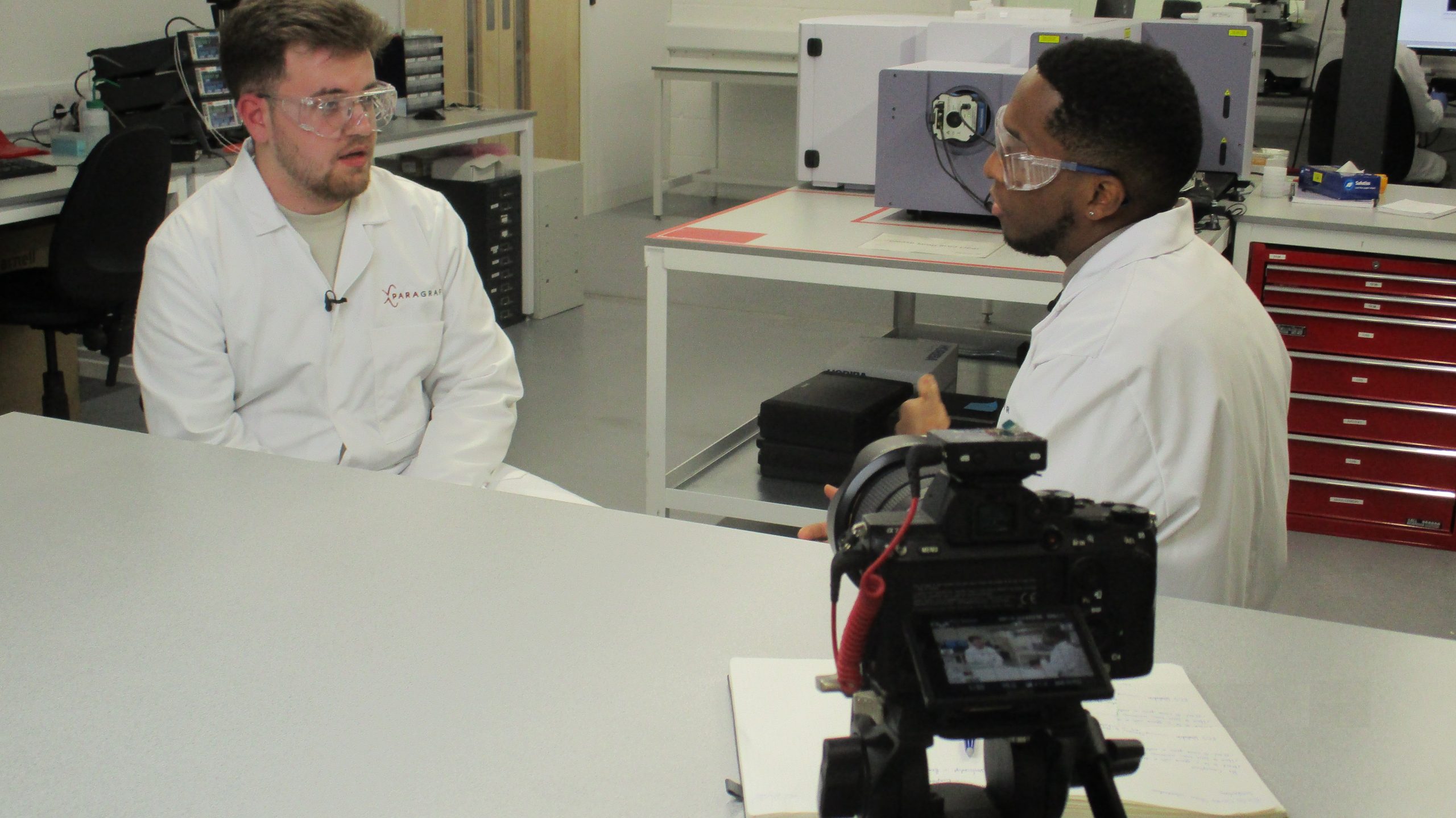An on demand recording of the webinar – How Graphene is Redefining Hall Effect Sensor Performance – is now available for viewing.
Speakers
 Dr Ellie Galanis – BEng, Ph.D
Dr Ellie Galanis – BEng, Ph.D
Product Owner- Graphene Hall Sensors @Paragraf
Ellie was awarded a first-class degree in materials science and engineering and attained a Ph.D in the study of metallic crystal growth. She spent a total of 7 years on the research and development of novel materials; targeting and delivering on specific industrial demands. Her magnetic materials research has led to her participation as an active member on the committee of the UK Magnetics Society, where she is currently serving as Vice Chair. With her expertise and diverse knowledge in novel materials and their applications, Ellie subsequently held university positions aimed at commercialising and generating industrial engagement with academic research; building lasting and mutually beneficial partnerships.
 Dr Hugh Glass – MChem, PhD, MRSC
Dr Hugh Glass – MChem, PhD, MRSC
Technology Owner – Graphene Hall Sensors @Paragraf
Hugh achieved a first-class Master’s degree in chemistry from the University of Surrey, focusing on the synthesis of new materials and their use in green energy applications. He then moved to Cambridge University to study for a PhD in the synthesis and characterisation of novel electrode materials for batteries. This was undertaken as part of the Nanotechnology centre for doctoral training (NanoDTC), a multidisciplinary centre which exposed Hugh to a wide range of science and commercial areas; from courses on quantum mechanics, materials science and bio mimicry to short consultancy projects and business, innovation and communication courses. This experience helps him bring together ideas from a wide variety of fields to advance innovation at Paragraf.
Abstract
The Hall effect marks the confluence of current flow and magnetic field strength, making it extremely useful in electronic systems. Sensors based on the Hall effect are typically limited not by the effect itself, but by the side-effects caused by the materials used to measure it; the planar effect. Standard semiconductor technologies are not able to discriminate between wanted and unwanted magnetic fields and they suffer from limited sensitivity. This can impose system-level demands such as concentrators to overcome these shortcomings, which can make them difficult to integrate.
Using graphene on a semiconductor substrate addresses all these issues. In this webinar, experts in this field discuss how graphene-based Hall sensors are redefining the way magnetic field strength is measured. Dr Ellie Galanis, Graphene Hall Sensor Product Owner at Paragraf, and Dr Hugh Glass, Graphene Hall Sensor Technology Owner at Paragraf, explain how it is now possible to produce sensors that feature a graphene monolayer that is just one atom thick, and how this eliminates the planar effect that inhibits other Hall sensors. The result is an extremely high resolution magnetic sensing technology that is 30 times more sensitive than silicon-only solutions, while operating at temperatures approaching absolute zero.
Learn how graphene will change the way the industry is exploiting other disruptive technologies, from superconductors to advanced battery chemistry and cell structures. Drs Galanis and Glass then describe how this will influence the way vertical markets develop, including automotive, medical, satellite and space, energy, industrial automation and more.






